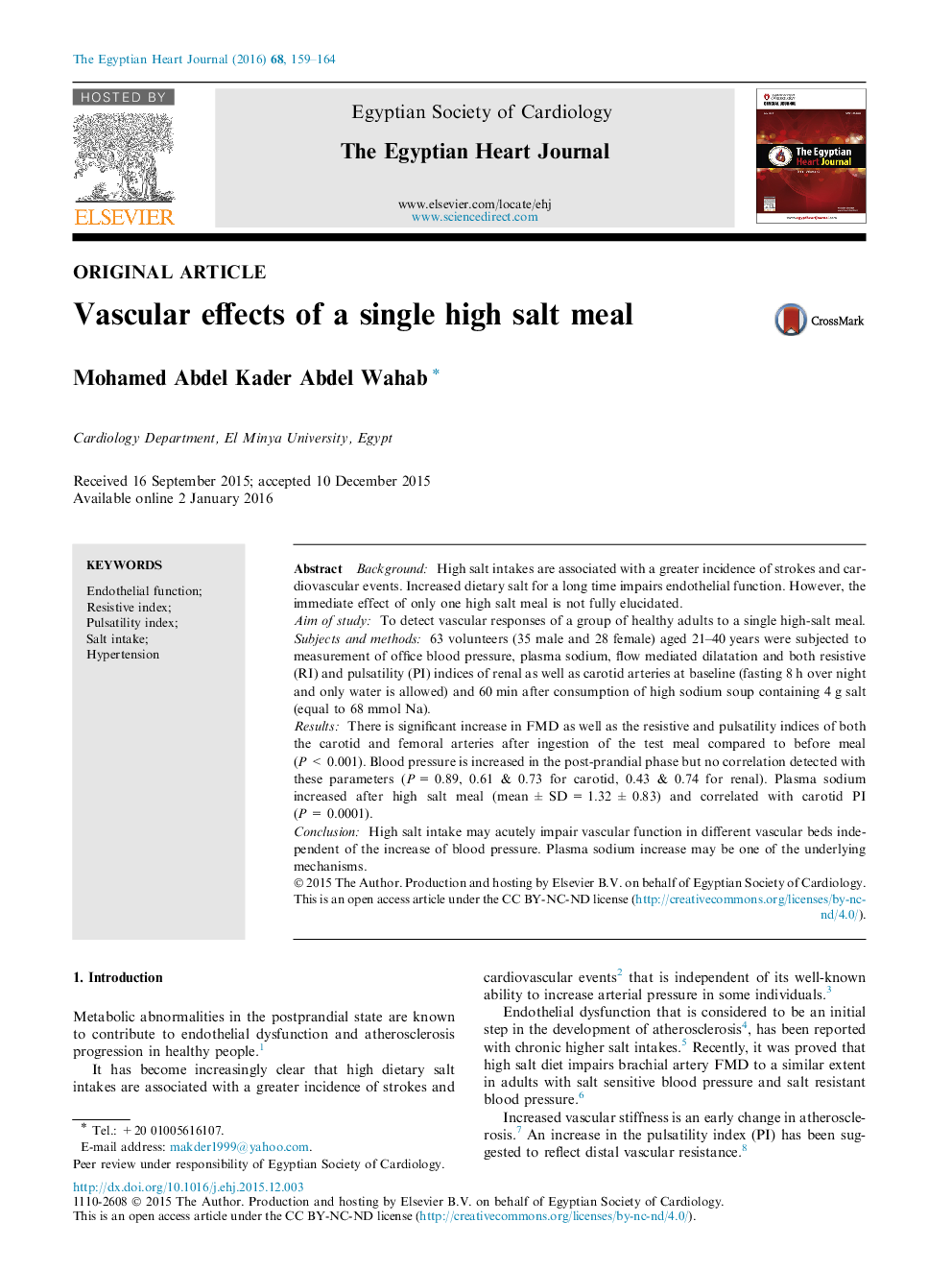| Article ID | Journal | Published Year | Pages | File Type |
|---|---|---|---|---|
| 2910451 | The Egyptian Heart Journal | 2016 | 6 Pages |
BackgroundHigh salt intakes are associated with a greater incidence of strokes and cardiovascular events. Increased dietary salt for a long time impairs endothelial function. However, the immediate effect of only one high salt meal is not fully elucidated.Aim of studyTo detect vascular responses of a group of healthy adults to a single high-salt meal.Subjects and methods63 volunteers (35 male and 28 female) aged 21–40 years were subjected to measurement of office blood pressure, plasma sodium, flow mediated dilatation and both resistive (RI) and pulsatility (PI) indices of renal as well as carotid arteries at baseline (fasting 8 h over night and only water is allowed) and 60 min after consumption of high sodium soup containing 4 g salt (equal to 68 mmol Na).ResultsThere is significant increase in FMD as well as the resistive and pulsatility indices of both the carotid and femoral arteries after ingestion of the test meal compared to before meal (P < 0.001). Blood pressure is increased in the post-prandial phase but no correlation detected with these parameters (P = 0.89, 0.61 & 0.73 for carotid, 0.43 & 0.74 for renal). Plasma sodium increased after high salt meal (mean ± SD = 1.32 ± 0.83) and correlated with carotid PI (P = 0.0001).ConclusionHigh salt intake may acutely impair vascular function in different vascular beds independent of the increase of blood pressure. Plasma sodium increase may be one of the underlying mechanisms.
